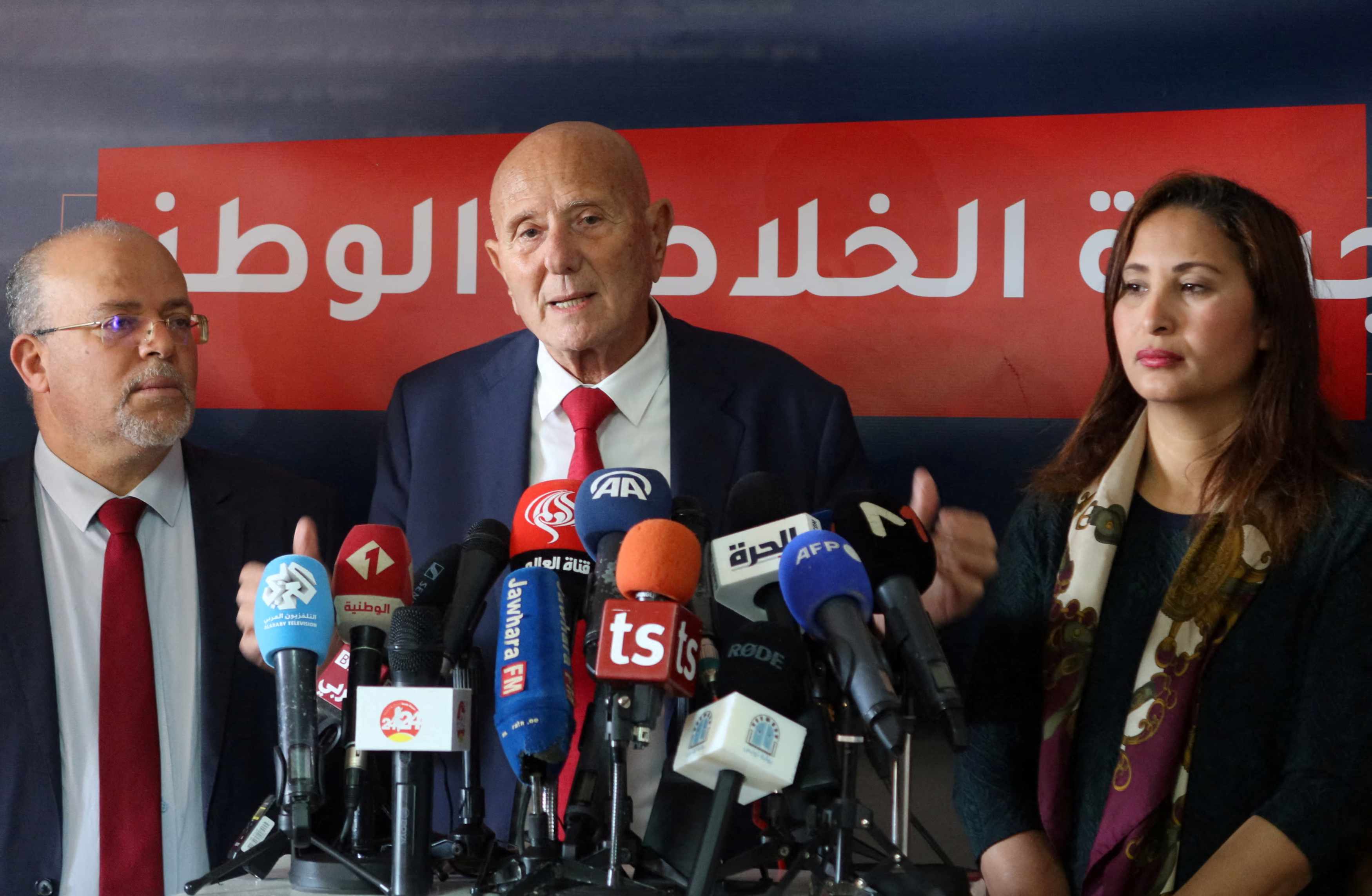A court in Tunisia has handed down long jail terms to a group of political opponents, businessmen, and legal professionals accused of plotting against the state and supporting terrorism, sparking condemnation from rights groups and lawyers who call the proceedings politically driven.
Among the 40 individuals convicted were prominent leaders of the National Salvation Front, the country’s main opposition coalition.
Those sentenced include Issam Chebbi and Jawhar Ben Mbarek, who are currently in detention and received 18-year prison terms.
According to a defence lawyer, activist and businessman Kamel Eltaief received the harshest sentence—66 years. Most of the accused were tried in absentia, having left the country before the ruling.
The convictions come amid a growing crackdown on dissent since President Kais Saied assumed sweeping powers.
Elected in 2019, Saied dissolved parliament and later secured a second term in an election held last year.
His administration has been widely criticised for detaining opposition voices and consolidating power.
The trial and its outcomes have drawn sharp criticism.
Human rights organisations have accused the Tunisian government of using the judiciary to target opponents and curtail political freedoms.
Amnesty International has highlighted what it describes as "a worrying decline in fundamental rights" under President Saied’s leadership.
Defence lawyers were also quick to dismiss the legitimacy of the court’s decisions. Speaking after the Friday ruling, lawyer Ahmed Souab told Reuters: "I have never witnessed a trial like this. It’s a farce."
Kamel Jendoubi, a former minister and one of the 40 accused, also condemned the verdict.
Speaking to AFP from abroad, Jendoubi said: "This is not a judicial (SIC) ruling, but a political decree executed by judges under orders."
The case centred on accusations of "conspiracy against state security" and "belonging to a terrorist group."
The Tunisian authorities claimed that the group had formed alliances with foreign actors and internal networks to destabilise the country.
However, critics argue that the charges are part of a broader effort to weaken the political opposition.
Those targeted in the case have long been vocal critics of President Saied’s leadership.
The National Salvation Front, whose members were among those sentenced, has regularly challenged his political decisions and accused him of steering the country toward authoritarianism.
Since coming to power, Saied has portrayed himself as a reformer determined to dismantle what he describes as a corrupt system.
In response to growing criticism, he has maintained that he is confronting “a corrupt elite” and “traitors,” rather than undermining democracy.
Tunisia, once hailed as a success story of the Arab Spring, is now facing renewed scrutiny from both domestic and international observers.
The country’s democratic transition began in 2010 after mass protests ousted long-time leader Zine El Abidine Ben Ali.
The recent events mark a stark contrast to those democratic beginnings.
Last year’s presidential election, which gave Saied a second term, was Tunisia’s third since the fall of Ben Ali.
While supporters credit Saied with standing against corruption, opponents see his actions as eroding the democratic gains of the past decade.
The imprisonment of opposition leaders, especially in absentia, has sparked fears about the future of political freedoms in Tunisia.
Many of those convicted remain abroad, unable or unwilling to return due to the risk of arrest.
As the political climate becomes more tense, legal experts and rights advocates continue to voice concerns over the use of the judiciary to silence criticism.
They argue that the handling of this case sets a troubling precedent for future dissent.
Despite the backlash, Tunisian authorities have defended the convictions, insisting that the law must take its course.
Meanwhile, pressure is mounting from civil society groups and international watchdogs demanding fair trials and respect for civil liberties.
